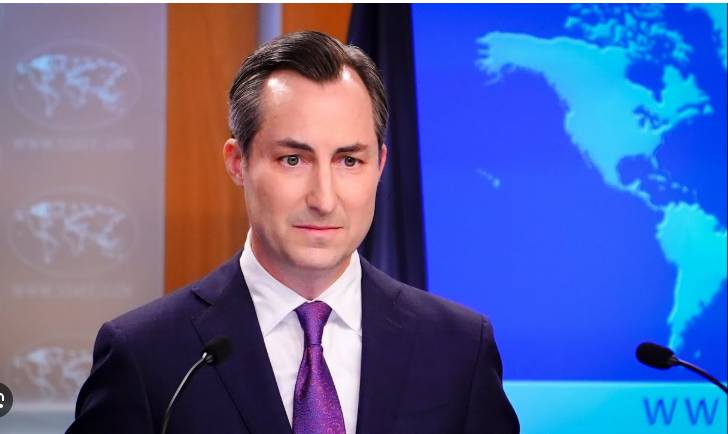The United States has reiterated its support for Pakistan in tackling terrorism and violent extremism. It also urged Islamabad to ensure that protests in the country are handled peacefully. This was stated by State Department Spokesperson Matthew Miller during his daily briefing in Washington on Monday.
“The United States continues to stand with Pakistan in its fight against terrorism and extremism,” said Miller. He reaffirmed the US stance, emphasizing the importance of countering these challenges.
When asked about the recent protests by the Pakistan Tehreek-e-Insaf (PTI), Miller said that the US supports peaceful demonstrations. He added that governments worldwide, including Pakistan, should respect peaceful protests and handle them responsibly.
The spokesperson was also questioned about the Turkmenistan-Afghanistan-Pakistan-India (TAPI) gas pipeline. In response, he underscored the US position on the Taliban’s actions in Afghanistan. He criticized the group for its treatment of Afghan citizens, especially women and girls.
Miller reiterated that protests across the globe, including in Pakistan, must remain non-violent. He also urged Pakistani authorities to manage protesters with fairness and respect.
In a separate query, Miller addressed concerns about an alleged plot to assassinate a Sikh leader. He said US officials frequently discuss this issue with their Indian counterparts during bilateral meetings.
When asked about remarks made by President-elect Donald Trump on threatening allied nations, Miller declined to comment. He said it would not be appropriate to discuss the policies of an administration that has yet to assume office.
“We have one president at a time,” Miller stated. He added that the current administration’s foreign policy remains the focus until a new State Department spokesperson takes over under President Trump’s leadership.
The US emphasized its ongoing partnership with Pakistan in security matters while advocating for peaceful political engagement and civil rights. This highlights the importance of stability and cooperation in maintaining regional peace.


